Distancing Lessons from Faculty Who Travel to Remote Places
Duke faculty who conduct research all over the world share lessons for adjusting to life during COVID-19
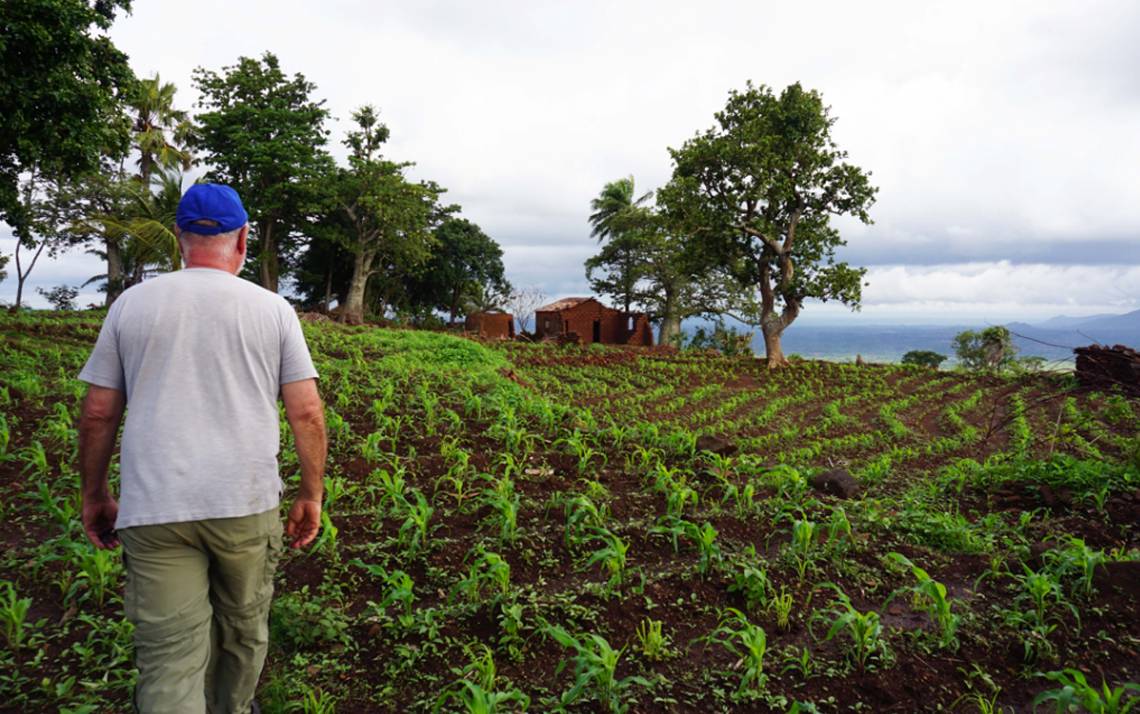
Duke faculty members throw themselves into remote and unfamiliar environments for their research.
From exploring villages in West Africa to traveling by train in the far corners of Siberia, remote research has taught faculty valuable lessons about working and living.
Eve Duffy, associate vice provost for Duke Global Affairs, said traveling teaches vital traits to help during this time: flexibility, patience and forming a positive outlook.
“Our faculty know everything isn’t going to work out how they anticipated when they travel,” Duffy said. “There are going to be travel delays and physical and emotional roadblocks. Faculty learn to be adaptable in the settings they travel through. In the case of physical distancing, they adapt to being stuck in one place.”
Here are some lessons from faculty who travel to Togo, Russia and Uganda to help you adjust to life during COVID-19.
Create and keep a routine
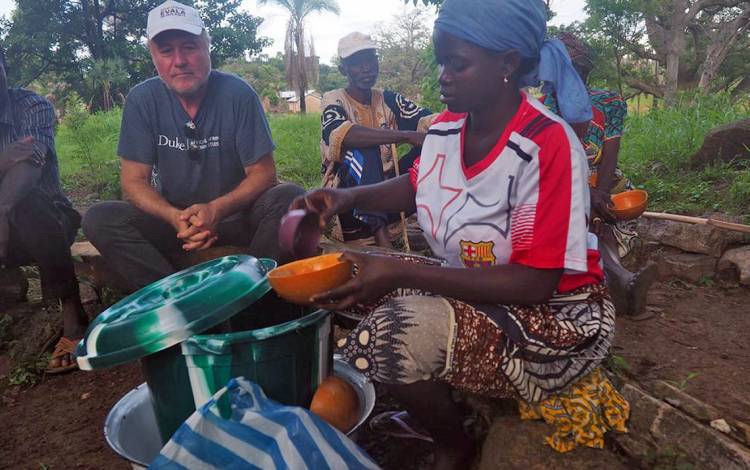
When Charles Piot travels to the village of Kuwdé in northern Togo, there is no running water, electricity or plumbing, and he may get bit by malarial mosquitoes.
But the 300 villagers are gracious to a fault and welcome him to their fields of yams and sorghum, and to their markets and into their homes.
“It’s a radically different environment that I have to make myself home in every time I visit,” said Piot, professor of cultural anthropology. “There’s always an adjustment period during the first week.”
Piot has traveled to Togo for nearly 30 years to study how traditions, modernization and globalization come together in remote villages. He visits Togo at least twice a year, for two months in the summer with students for a DukeEngage program, and again for several weeks in December to conduct more research on his own.
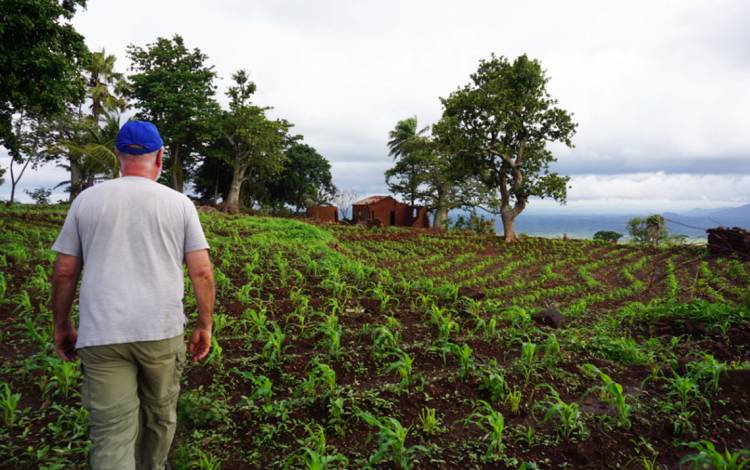 Piot, who has visited dozens of villages over the years, is either alone or with the students, who also spend their time in Kuwdé, a 10-hour drive north from the capital, Lomé, and an hour walk from the nearest market.
Piot, who has visited dozens of villages over the years, is either alone or with the students, who also spend their time in Kuwdé, a 10-hour drive north from the capital, Lomé, and an hour walk from the nearest market.
Piot finds the easiest way to adjust to isolation is to create and keep a routine. When he is in Togo, he starts each day at sunrise in a villager’s mud-brick hut with a tin roof. Piot brushes his teeth, rolls up his mosquito net, prepares coffee and oatmeal and gets to work on his latest book project.
Since working at home in Durham, Piot has been as intentional about his routine as if in Togo. He wakes at 5:30 a.m., has coffee and toast, then writes for several hours. He spends the afternoon teaching online, checking in with students and responding to email. Every evening Piot and his family watch “Money Heist,” “Tiger King” or “Homeland.”
“The first week is never easy,” Piot said. “By the second or third week, things start to feel better. Routines create structure when we’re encountering a time or place that is unfamiliar.”
Practice perspective
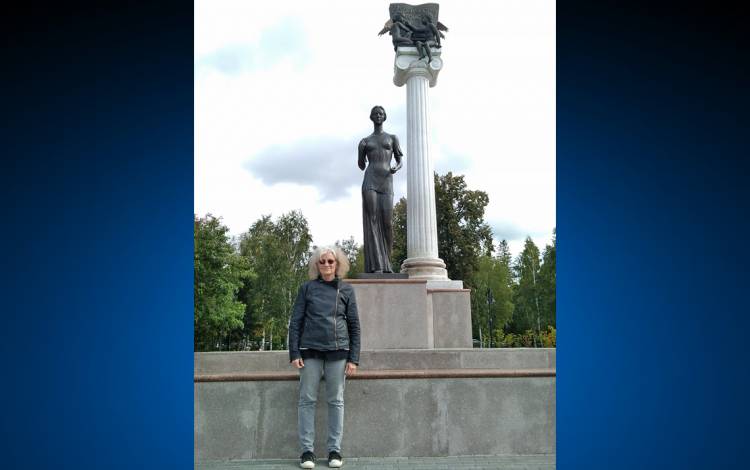
Carol Apollonio’s 42-day solo journey across Russia last summer was a practice in changing her perspective.
Apollonio experienced multiple encounters with strangers, unfamiliar cities and sleep disruption as she rode a series of night trains across Siberia on the Trans-Siberian Railway in the footsteps of Russian writers Anton Chekhov and Fyodor Dostoevsky. She said she plans to write a book about the writers’ journeys across Russia.
Aboard an overnight train, Apollonio awoke at 4 a.m. to the sounds of loud male voices in her closet-sized compartment. Three huge, rough blue-collar workers heading to remote Siberian work sites spent the next hour crumpling their bags and hammering on a broken train window, before ultimately settling down on the other three bunks.
“That moment ended up being a very good experience for me,” said Apollonio, professor of the practice of Slavic and Eurasian Studies. “I had to let this moment of frustration and fear wash over me. I had no way to change it.”
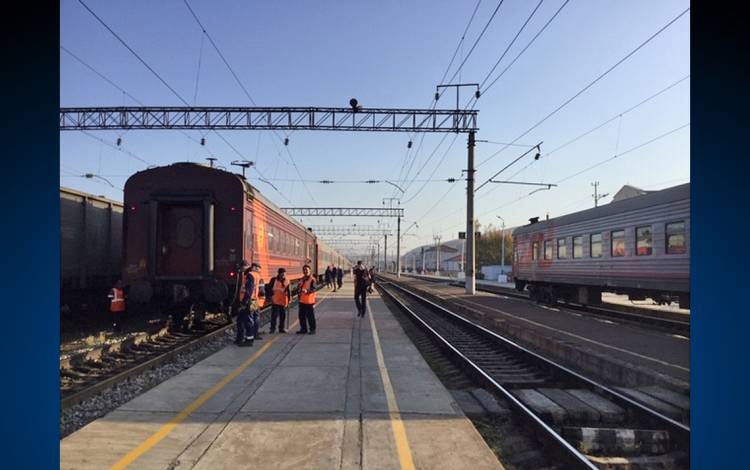 Apollonio fights frustrations during the disruptions caused by the coronavirus by refocusing her perspective. Every time she feels grumpy, she considers the situation of people working in healthcare and her son and his wife in isolation in their small Brooklyn apartment with two young children. Apollonio focuses on gratitude.
Apollonio fights frustrations during the disruptions caused by the coronavirus by refocusing her perspective. Every time she feels grumpy, she considers the situation of people working in healthcare and her son and his wife in isolation in their small Brooklyn apartment with two young children. Apollonio focuses on gratitude.
Apollonio lives in downtown Durham and has invested in a new hobby: riding a motorcycle. She purchased a black Yamaha V Star motorcycle in April to explore the city and Durham County on beautiful weekends.
“I have a new motorcycle to ride around in my own personal helmet-bubble,” she said. “I have plenty of space. I can go outside for walks. We’re all struggling, but there are still positives to take from each day.”
Give yourself a break
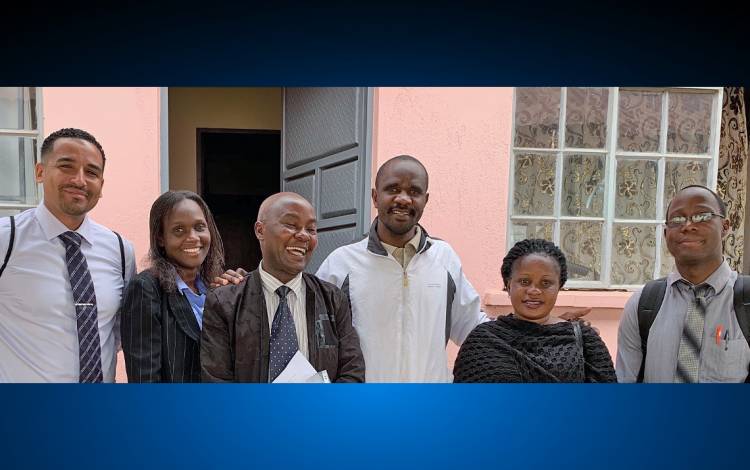
Anthony Fuller, MD, MScGH, assistant professor for Duke Neurosurgery and the Duke Global Health Institute, teaches a Bass Connections course within the Brain and Society Theme and mentors multiple levels of students from elementary to professional school students.
But once a month, he was traveling to Uganda as part of his role as the Associate Director of the Division of Global Neurosurgery and Neurology, to aid efforts training Ugandan neurosurgeons, lead research projects, and visit patients and collaborators in hospitals around the country.
Because of the seven-hour time difference between North Carolina and Uganda, text messages, emails and calls inundate Fuller all day from all over. He’ll wake up in Durham with dozens of text messages from colleagues in Uganda. In Uganda, Fuller goes to bed with emails arriving from Duke community members.
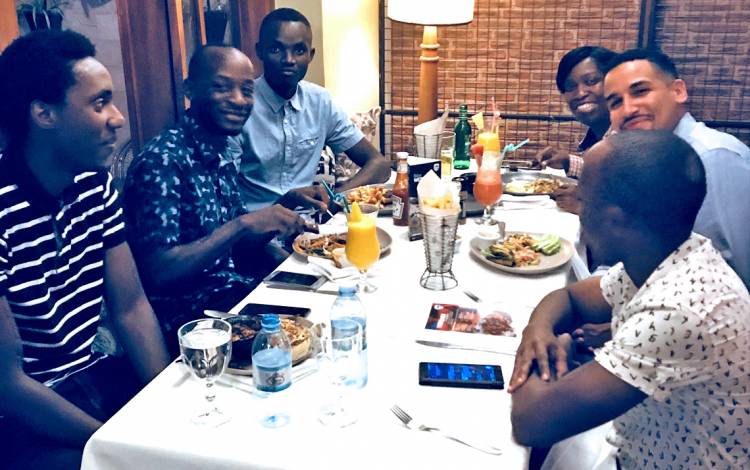 “The time difference creates this blurring between work time and leisure time,” Fuller said. “I have to remind myself to rest, or I'm not going to be an effective human."
“The time difference creates this blurring between work time and leisure time,” Fuller said. “I have to remind myself to rest, or I'm not going to be an effective human."
When he sleeps, eats with host family in Uganda or spends time with his daughter at home, Fuller turns off notifications on his phone. He’s told colleagues in Uganda and Durham to expect delays in his response when he's on the opposite side of the Atlantic Ocean.
Fuller, who is now at home in Durham, takes breaks during work even while isolating at home with his daughter. If he’s working out or reading for fun, he’ll try to ignore the phone. He’s currently learning about computing by reading “Quantum Computing Since Democritus.”
“It can be tempting to always respond and always be connected when we’re stuck in one place,” he said. “You have to accept the fact that you don’t need to respond immediately. Give yourself a boundary between work and home.”
Help share the proactive and extensive work being done by all Duke community members. Send ideas, shout-outs and photographs here or write working@duke.edu